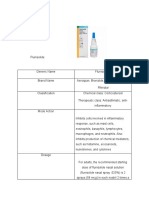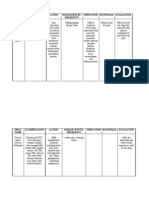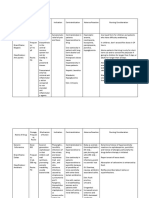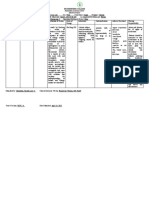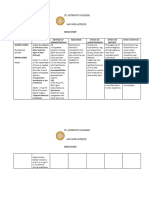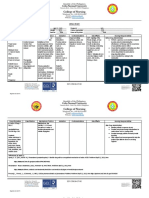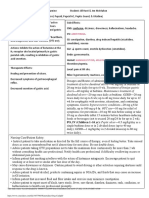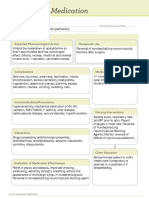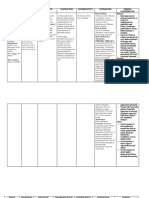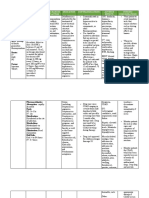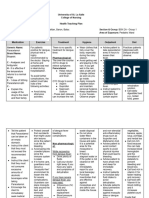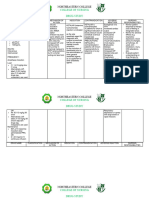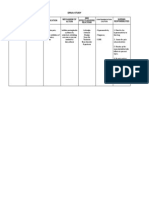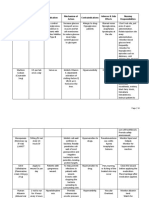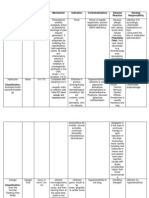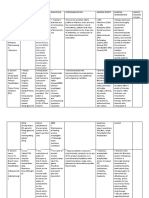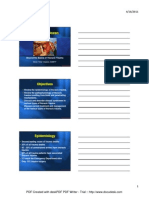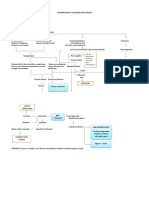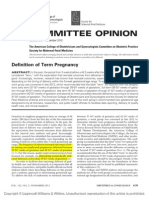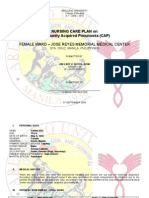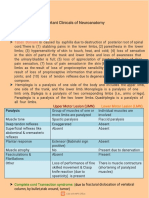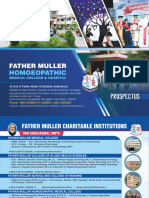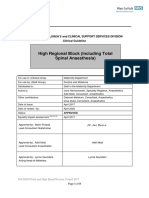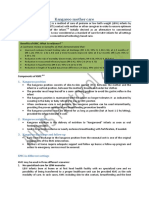0% found this document useful (0 votes)
449 views5 pagesDrug Study
Ketorolac is a nonsteroidal anti-inflammatory drug (NSAID) that works by inhibiting prostaglandin and leukotriene synthesis. It is indicated for short term management of moderate to severe acute post-operative pain and treatment of allergic conjunctivitis and reduction of inflammation following ocular surgery. Common adverse effects include GI upset, headache, rash and diarrhea. It should be used with caution in patients with renal impairment, history of ulcers or asthma.
Uploaded by
Geevine CansinoCopyright
© Attribution Non-Commercial (BY-NC)
We take content rights seriously. If you suspect this is your content, claim it here.
Available Formats
Download as DOCX, PDF, TXT or read online on Scribd
0% found this document useful (0 votes)
449 views5 pagesDrug Study
Ketorolac is a nonsteroidal anti-inflammatory drug (NSAID) that works by inhibiting prostaglandin and leukotriene synthesis. It is indicated for short term management of moderate to severe acute post-operative pain and treatment of allergic conjunctivitis and reduction of inflammation following ocular surgery. Common adverse effects include GI upset, headache, rash and diarrhea. It should be used with caution in patients with renal impairment, history of ulcers or asthma.
Uploaded by
Geevine CansinoCopyright
© Attribution Non-Commercial (BY-NC)
We take content rights seriously. If you suspect this is your content, claim it here.
Available Formats
Download as DOCX, PDF, TXT or read online on Scribd
/ 5
